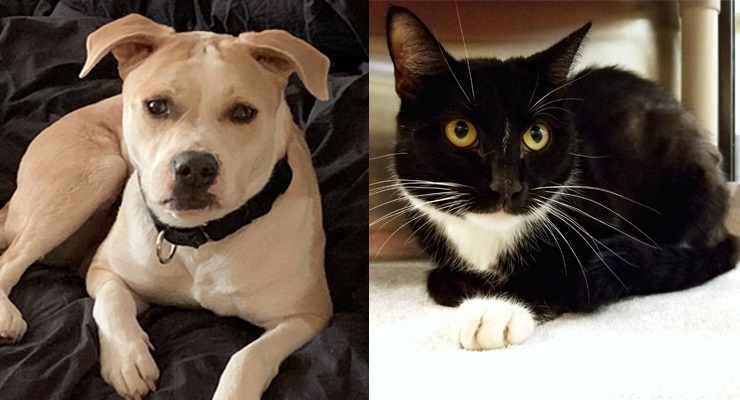What to Do If Your Pet Is Poisoned
Friday, September 12, 2014
Poisoning is often seen in pets. Animals, and dogs in particular, eat anything which looks appealing. Animals do not pause and think: ‘Could this be poisonous?’
Poisoning can be accidental or deliberate. The latter is rare, but when an animal is deliberately poisoned, it is especially distressing. Usually, the poison is hidden in an attractive bait, such as a piece of meat. This type of poisoning is an appalling form of cruelty to animals. Whenever it is suspected, the police are informed and all efforts are made to arrest and prosecute the culprit.
However, accidental poisoning is far more common. Most households possess substances which are potentially toxic to animals. Examples include rat poison, anti-freeze, slug pellets and weed killers. These substances are often perfectly safe when used according to the manufacturer’s instructions, and if safely stored out of the reach of pets. But accidents do happen.
The dogs are kept inside when the rat bait is laid out, but somebody accidentally leaves a door open and the dogs find the poison. The bottle of anti-freeze in the garage is knocked over, and the cat licks the liquid up. The playful puppy chews his way into a bag of slug pellets in the garden shed. I have personally seen all of these situations – they were genuine accidents and nothing could have been done to prevent them.
If it is suspected that an animal has eaten a poison, it is essential to contact a vet on the telephone immediately. Poisons only harm an animal if they are absorbed into the bloodstream, so the first aim is to minimise the amount which is absorbed. The vet may advise you on the telephone steps you can take at home to reduce poison absorption.
The vet will usually also advise you to rush the animal to the surgery as soon as possible. Drugs can then be given through an injection, which will cause vomiting. In some cases, it may be necessary put the animal under a general anaesthetic, and perform gastric lavage, which involves flushing out all the stomach contents.
If it is more than a few hours since the poison was consumed, it may be too late to remove it from the stomach, since it will already have moved down the digestive tract and been absorbed. In these cases, it is necessary to commence treatment for poisoning, to try to prevent serious illness.
A few poisons have direct antidotes (for example Vitamin K is used to combat certain rat poisons). However, in most cases, there is no simple answer. General supportive treatment must be used to keep an animal alive until the body has metabolised and excreted the poison naturally.
This may involve hospitalising the pet, giving intravenous fluids via a drip, and continuous intravenous infusion of different drugs to relieve the symptoms. This may involve intensive round-the-clock nursing.
Sometimes, such efforts are in vain, and the animal may pass into a coma or even die. However, animal’s bodies are remarkable creations, and I have known animals to survive doses of certain poisons which would overwhelm an adult human. It is always worth the effort, and there is great satisfaction in saving an animal’s life against all odds.
But of course, it is far better never to need to treat an animal for poisoning. Pet owners should be very careful with the storage and use of any poisonous substances.
Whenever you use a poison of any type, don’t forget to protect your pet.
Article Source: http://EzineArticles.com/?expert=Sarah_A_Bevan


